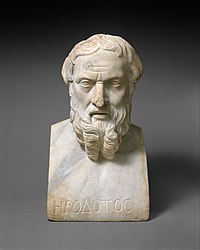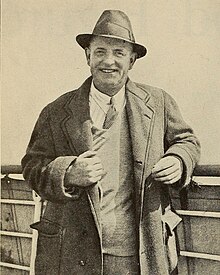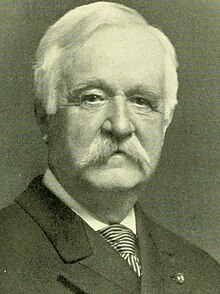Portal:History
The History Portal

Herodotus (c. 484 BC – c. 425 BC) is often
considered the "father of history"
History (derived from Ancient Greek ἱστορία (historía) 'inquiry; knowledge acquired by investigation') is the systematic study and documentation of the human past. History is an academic discipline which uses a narrative to describe, examine, question, and analyse past events, and investigate their patterns of cause and effect. Historians debate which narrative best explains an event, as well as the significance of different causes and effects. Historians debate the nature of history as an end in itself, and its usefulness in giving perspective on the problems of the present.
The period of events before the invention of writing systems is considered prehistory. "History" is an umbrella term comprising past events as well as the memory, discovery, collection, organization, presentation, and interpretation of these events. Historians seek knowledge of the past using historical sources such as written documents, oral accounts or traditional oral histories, art and material artefacts, and ecological markers.
Stories common to a particular culture, but not supported by external sources (such as the tales surrounding King Arthur), are usually classified as cultural heritage or legends. History differs from myth in that it is supported by verifiable evidence. However, ancient cultural influences have helped create variant interpretations of the nature of history, which have evolved over the centuries and continue to change today. The modern study of history is wide-ranging, and includes the study of specific regions and certain topical or thematic elements of historical investigation. History is taught as a part of primary and secondary education, and the academic study of history is a major discipline in universities.
Herodotus, a 5th-century BCE Greek historian, is often considered the "father of history", as one of the first historians in the Western tradition, though he has been criticized as the "father of lies". Along with his contemporary Thucydides, he helped form the foundations for the modern study of past events and societies. Their works continue to be read today, and the gap between the culture-focused Herodotus and the military-focused Thucydides remains a point of contention or approach in modern historical writing. In East Asia a state chronicle, the Spring and Autumn Annals, was reputed to date from as early as 722 BCE, though only 2nd-century BCE texts have survived. The title "father of history" has also been attributed, in their respective societies, to Sima Qian, Ibn Khaldun, and Kenneth Dike. (Full article...)
Featured picture
Did you know (auto generated)

- ... that in 1993, the U.S. Supreme Court upheld West Virginia's largest punitive damages award in history, awarding $10 million – 526 times larger than the compensatory damages?
- ... that the historic mansion Bulgur Palas in Istanbul hosted a birdhouse for hundreds of domestic canaries in one room during its ownership by the Ottoman Bank?
- ... that the course of the Panzer Dragoon series has been said to parallel the history of the Sega Saturn?
- ... that during the first tour to the Soviet Union by any American ballet company, Lupe Serrano danced the first encore in the American Ballet Theatre's history?
- ... that soccer player Danielle Marcano scored four goals in back-to-back games that helped to send the University of Tennessee to the NCAA tournament quarterfinals for the first time in history?
- ... that in 1920, Elmer Smith hit the first grand slam in World Series history?

Sir Pelham Grenville Wodehouse, KBE (/ˈwʊdhaʊs/ WUUD-howss; 15 October 1881 – 14 February 1975) was an English writer and one of the most widely read humorists of the 20th century. His creations include the feather-brained Bertie Wooster and his sagacious valet, Jeeves; the immaculate and loquacious Psmith; Lord Emsworth and the Blandings Castle set; the Oldest Member, with stories about golf; and Mr. Mulliner, with tall tales on subjects ranging from bibulous bishops to megalomaniac movie moguls.
Born in Guildford, the third son of a British magistrate based in Hong Kong, Wodehouse spent happy teenage years at Dulwich College, to which he remained devoted all his life. After leaving school he was employed by a bank but disliked the work and turned to writing in his spare time. His early novels were mostly school stories, but he later switched to comic fiction. Most of Wodehouse's fiction is set in his native United Kingdom, although he spent much of his life in the US and used New York and Hollywood as settings for some of his novels and short stories. He wrote a series of Broadway musical comedies during and after the First World War, together with Guy Bolton and Jerome Kern, that played an important part in the development of the American musical. He began the 1930s writing for MGM in Hollywood. In a 1931 interview, his naive revelations of incompetence and extravagance in the studios caused a furore. In the same decade, his literary career reached a new peak. (Full article...)
On this day
December 26: Saint Stephen's Day (Western Christianity); Boxing Day in the Commonwealth; Wren Day in Ireland and the Isle of Man; Kwanzaa begins (African diaspora in the Americas)
- 1862 – American Civil War: The Battle of Chickasaw Bayou began with Confederate defenders engaging Union forces who were attempting to capture the city of Vicksburg, Mississippi.
- 1871 – Thespis, the first comic opera by Gilbert and Sullivan, premiered at the Gaiety Theatre in London.
- 1900 – A relief crew arrived at the Flannan Isles Lighthouse (pictured) in Scotland and discovered that the previous crew had disappeared.
- 1943 – Second World War: The German battleship Scharnhorst was sunk at the Battle of the North Cape during an attempt to attack Arctic convoys.
- 2004 – A major earthquake and tsunami devastated communities around the Indian Ocean, killing an estimated 227,898 people in 14 countries.
- Willy Corsari (b. 1897)
- Elizabeth David (b. 1913)
- Milagros Benet de Mewton (d. 1948)
- Stanisław Kot (d. 1975)
Selected quote
Truth alone will endure, all the rest will be swept away before the tide of time. I must continue to bear testimony to truth even if I am forsaken by all. Mine may today be a voice in the wilderness, but it will be heard when all other voices are silenced, if it is the voice of Truth.
— Gandhi, Indian political and spiritual leader
Related portals
More Did you know...
- ... that the Soviet Tupolev Tu-142 (pictured) maritime patrol aircraft was developed in response to the American UGM-27 Polaris submarine-launched ballistic missile?
- ... that Harry Powers said that watching his victims die was more fun than a brothel?
- ... that the effort put forth by the subject of Miró's 1937 Naked woman climbing a staircase and her heavy limbs are thought to reflect the tragedy of the Spanish Civil War?
- ... that 49% of German military losses happened in the last 10 months of the Second World War in Europe?
- ... that Thomas Edison lost a fortune in his ore-milling company, but "had a hell of a good time spending it"?
- ... that American McCaull Comic Opera Company actress May Yohé, once the owner of the Hope Diamond, died poor?
- ... that Egyptian political cartoonist Ahmad Nady took part in the 2011 Egyptian revolution, drawing cartoons while he demonstrated?
- ... that finds unearthed at the Israelite Tower in Jerusalem's Jewish Quarter attest to the Babylonian sack of the city in 586 BCE?
Topics
Categories

History • By period • By region • By topic • By ethnic group • Historiography • Archaeology • Books • Maps • Images • Magazines • Organizations • Fictional • Museums • Pseudohistory • Stubs • Timelines • Chronology • People • Wikipedia historians
WikiProjects
![]() WikiProject History •
Ancient Near East • Australian History • Classical Greece and Rome • Dacia • Former countries • History of Canada • Chinese history • European history • Heraldry and vexillology • Indian history • Jewish history • Medieval Scotland • Mesoamerica • Military history • Middle Ages • History of Science
WikiProject History •
Ancient Near East • Australian History • Classical Greece and Rome • Dacia • Former countries • History of Canada • Chinese history • European history • Heraldry and vexillology • Indian history • Jewish history • Medieval Scotland • Mesoamerica • Military history • Middle Ages • History of Science
WikiProject Time • Days of the Year • Years
WikiProject Biography • Composers • Political figures • Saints • United States Presidents
Things you can do
 |
Here are some tasks awaiting attention:
|
Associated Wikimedia
The following Wikimedia Foundation sister projects provide more on this subject:
-
Commons
Free media repository -
Wikibooks
Free textbooks and manuals -
Wikidata
Free knowledge base -
Wikinews
Free-content news -
Wikiquote
Collection of quotations -
Wikisource
Free-content library -
Wikiversity
Free learning tools -
Wiktionary
Dictionary and thesaurus




















































